Solidary mode of Living
“One of the most vital ways we sustain ourselves is by building communities of resistance, places where we know, we are not alone.” (Bell Hooks)
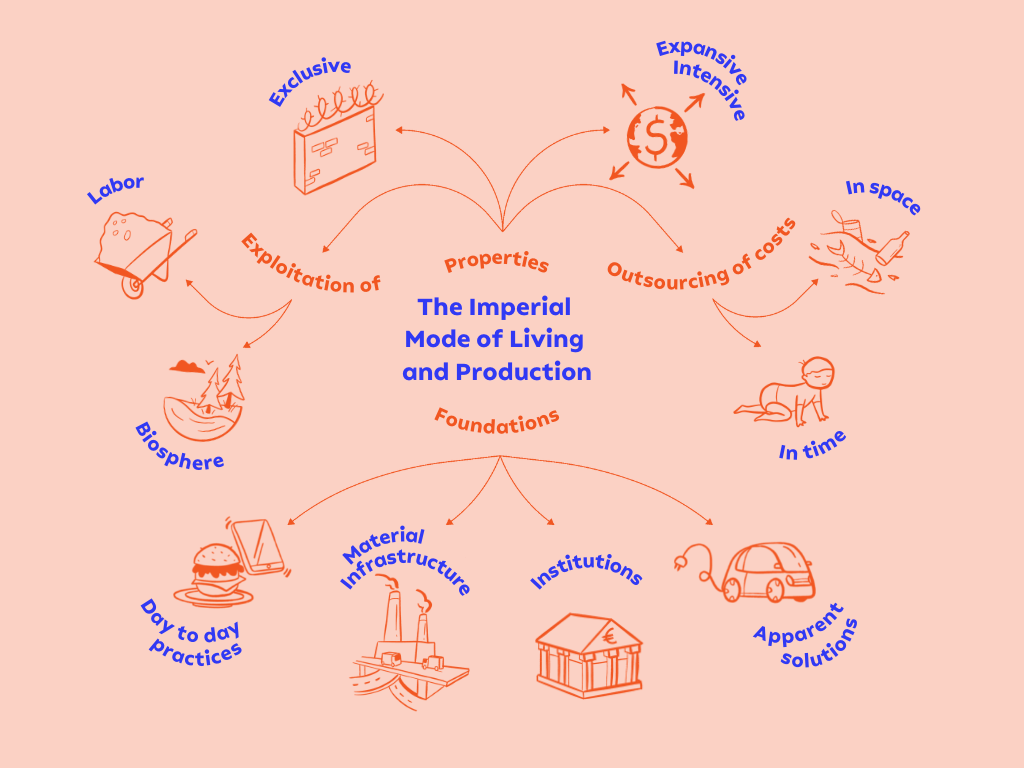
Already here and today, people create the basis for a Good Life for All. People all over the world are committed to a peaceful, democratic, ecologically sustainable coexistence free of exploitation, violence and discrimination. The principles of living together in solidarity show themselves in very different ways in projects and initiatives.
These principles emanate from the idea that social and ecological transformations cannot be reached independently and that they complement one another and thus connect the manifold activities. They aim to change political and economic structures as well as our everyday lives. This includes, for example, ownership, production and consumption, work and care, as well as participation. They create opportunities to recognise at all these levels the connection between humans and between man and nature. They give life to what we call solidarity.
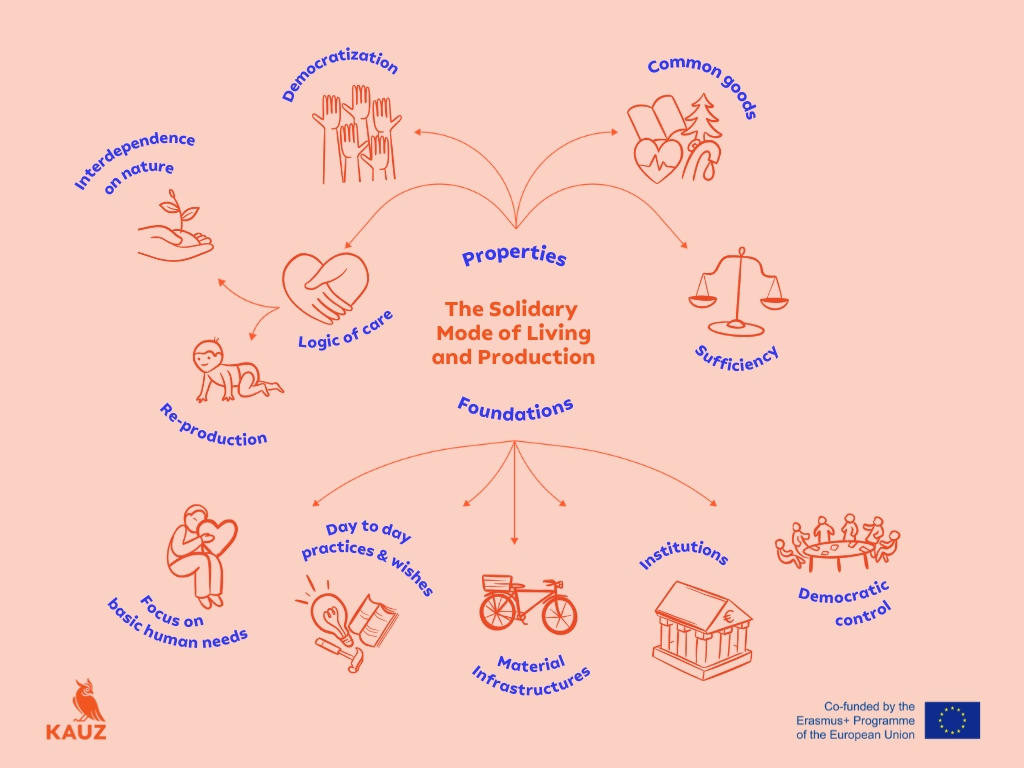
Democratisation: As far as ‘everyone’ is concerned, everyone decides
We are convinced that all human beings should have the opportunity to self-determine their lives and everything that affects them. To this end, all people need access to the resources necessary for this comprehensive participation. Democratisation therefore means redistribution. The same approaches are about temporal and emotional skills as well as education, material and social security. In addition, appropriate decision-making procedures are needed to overcome inequalities of power and enable all people to participate equally. However, the right to not always have to fight for one’s rights with full force (because one always cannot or does not always want to) must be respected.
Commoning: The creative power of community creation
People depend on material goods and resources. The imperial way of life organises the distribution of goods through private property and profit maximisation. Through the way of solidarity, people can use goods according to their needs without harming the needs of others.
Whether something is a common good depends not on ‘the good’ itself, but on how to deal with it: Commons are created when the parties concerned produce, maintain and use them collectively. They are therefore always social. All possible ways of producing and preserving goods in which people are jointly involved are conceivable as commoning. The people involved jointly decide on the design of the respective common property. In this process, the principle of democratisation is central and consumer goods are reduced according to the logic of sharing goods and services. Examples include Solidarity Purchase Groups or the shared use of household appliances or means of transport. In a collective context, a process of critical reflection is activated on “what and how much” we need.
Reproduction: Care together for all
If we take seriously that people depend on each other and on nature, the focus of our work shifts: It becomes about preserving life, ensuring participation and realising needs without exploiting others.
This is the principle of reproduction or care we envision. What we call wagework today contributes only partially or not at all to this vision. Nevertheless, employment is generally regarded a ‘productive’ activity. The reproductive part of the activities – that is to say- care for people, such as nursing and elderly care, childcare or housework, and also the preservation of nature – is devalued, although these activities require time, energy and skills, too.
We want a way of life and production which no longer attaches little value to reproductive activities and is consistent with the logic of care. For us, the term care work includes not only classical reproductive activities, but everything that gives, preserves and brings to life. So it is not only about washing, cleaning, and cooking, but also about growing food, mental health care, and creating music. That is why we are talking about reproduction, in order to bring today’s separate spheres of production and reproduction together. Activities no longer receive their recognition by producing economic added value, but by referring to the essentials, namely the preservation and development of human life and the ecological integrity.
Dependence: Nature as a shared world instead of a garbage dump
Care includes for us, the relationship between humans and nature – and thus the societal relations with nature. People depend on nature: It not only surrounds us, but we are intertwined with it in countless ways (dependence). We are nature ourselves. It also reminds us that the cycles of nature are vulnerable and that nature also needs care. So, we no longer consider our environment to be usable and exploitable, but rather attribute its intrinsic value and independence with us being human at the same time. We are in favour of shaping this necessary connection on an equal footing and with care.
Sufficiency: There’s enough for everyone
Where the growth logic of the Imperial Mode of Living says “More is better!”, the principle of sufficiency replies: “It’s enough! ” There is a double demand for us in this: On one hand, all people should have enough to live a good life. On the other hand, societies and social groups whose mode of living generates too large an ecological footprint must drastically reduce it. This also includes social equality: People with too much power and property must cede a corresponding portion of their claims. Sufficiency aims to make people use less resources (energy, material, and so on) than today. However, sufficiency does not mean absolute renunciation, but shifts the scale: The question is no longer, what is faster, better, further, but what is enough.”
References
I.L.A. Kollektiv (Hg.) (2019): Das Gute Leben für Alle. Wege in die Solidarische Lebensweise. München: oekom.
Microlearnings
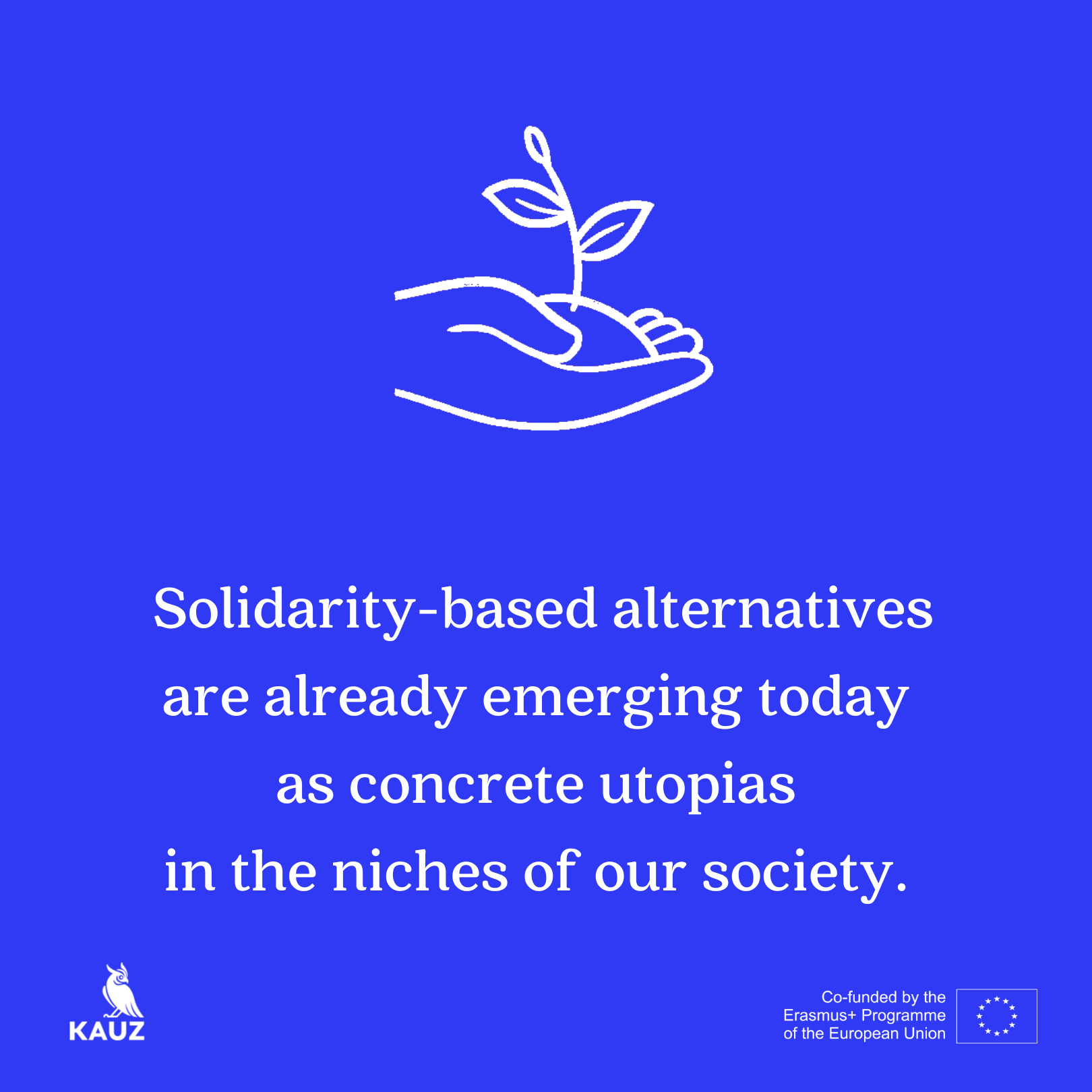
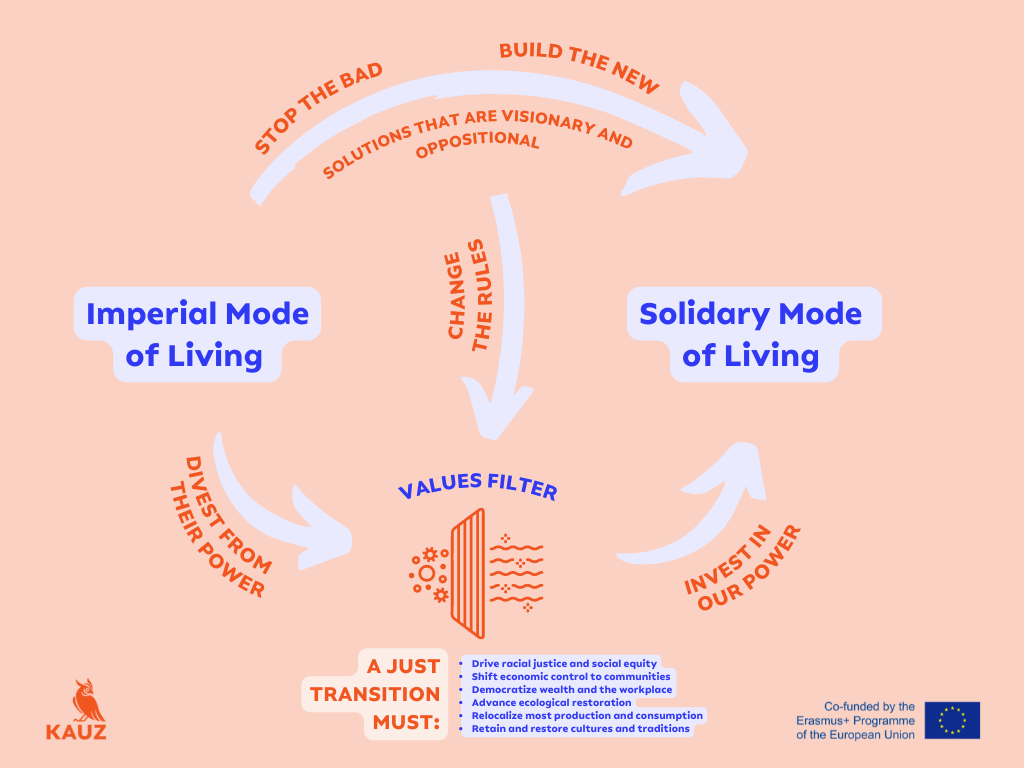

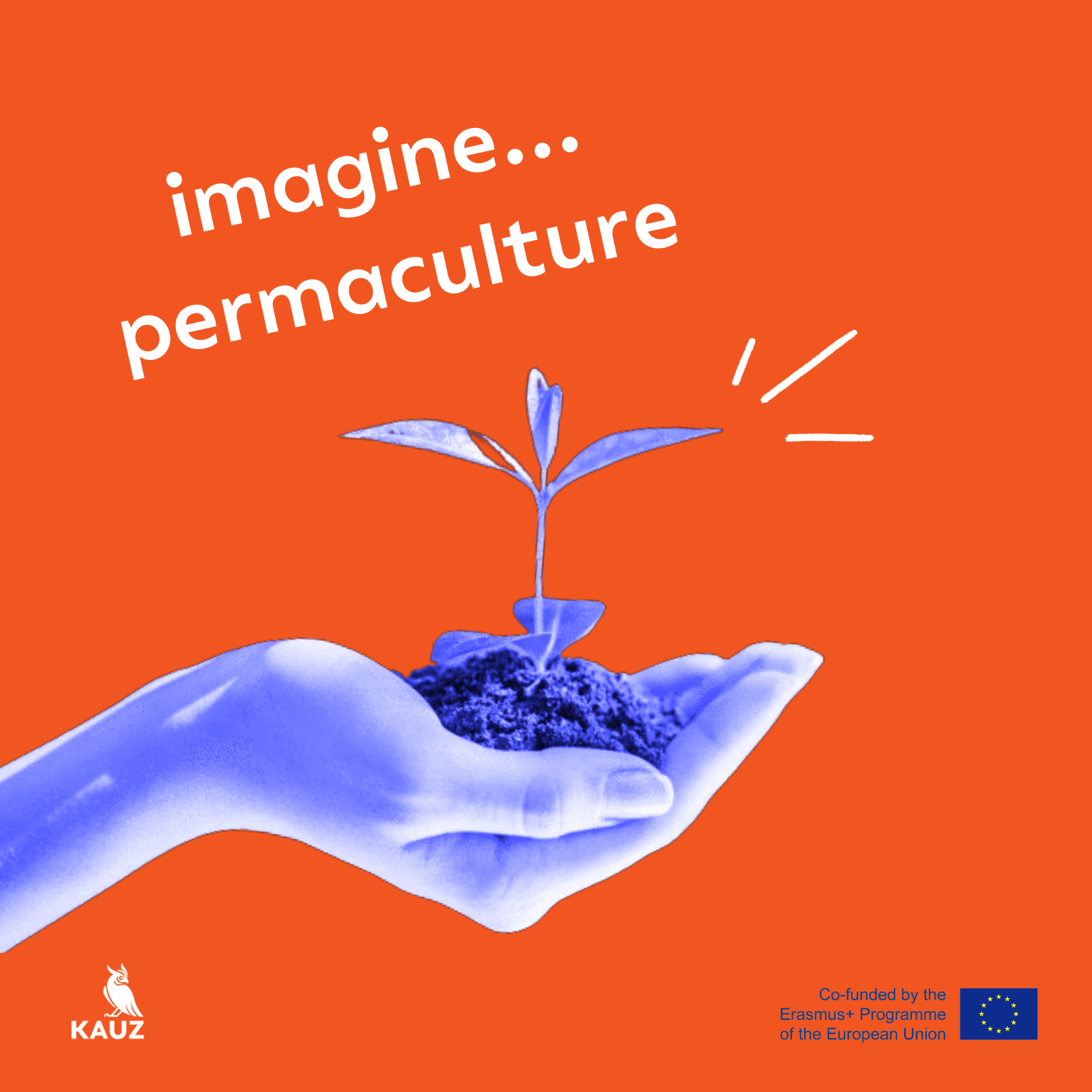
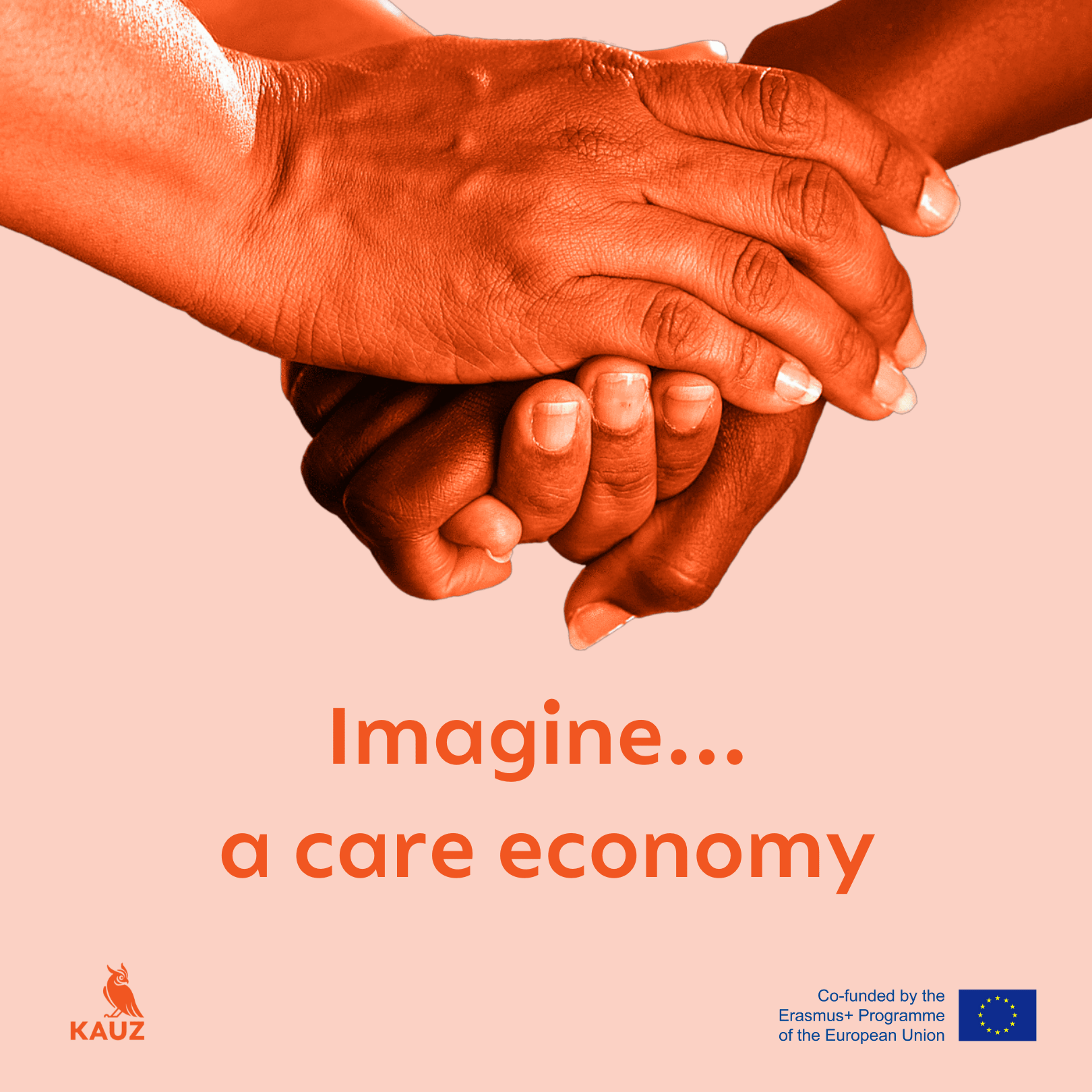
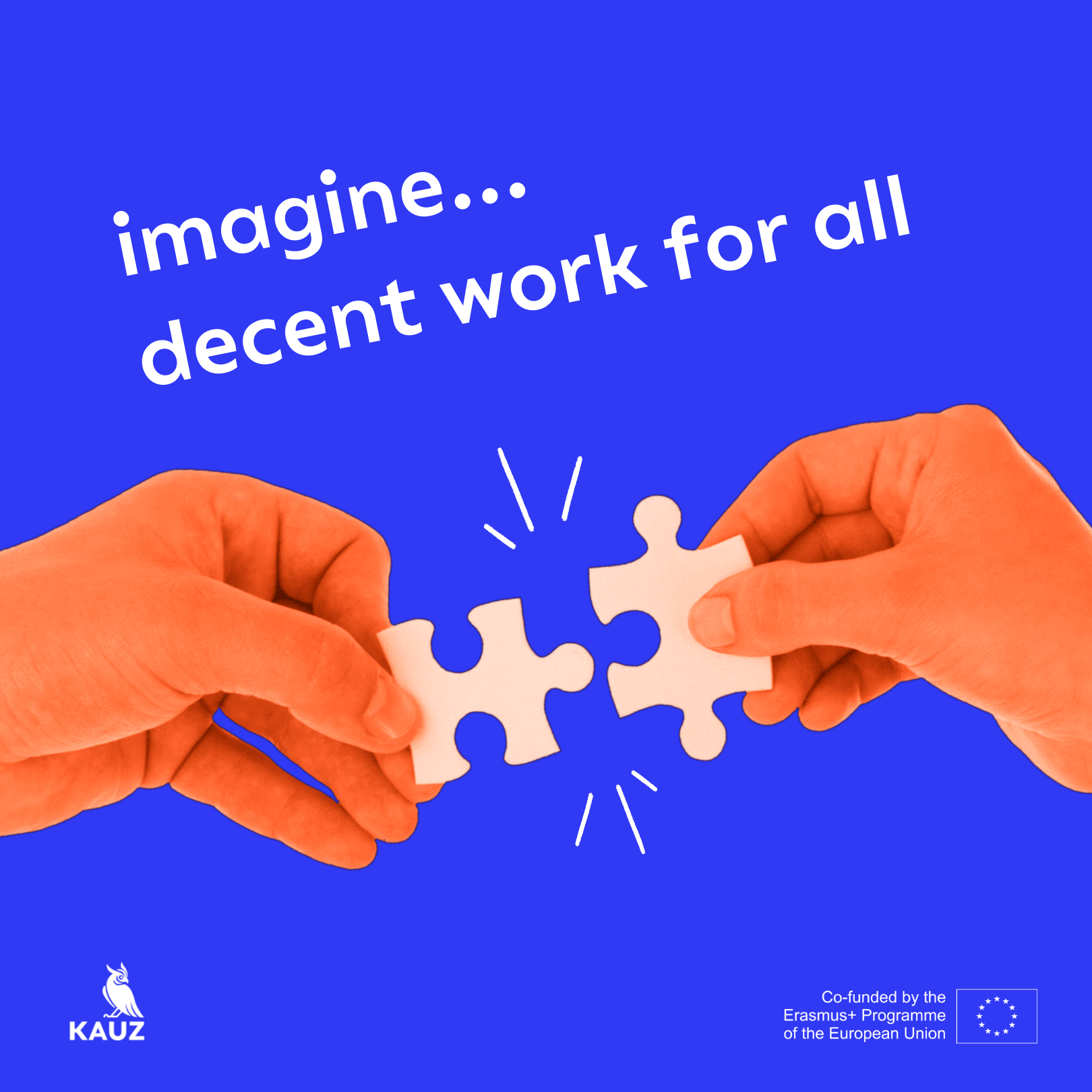
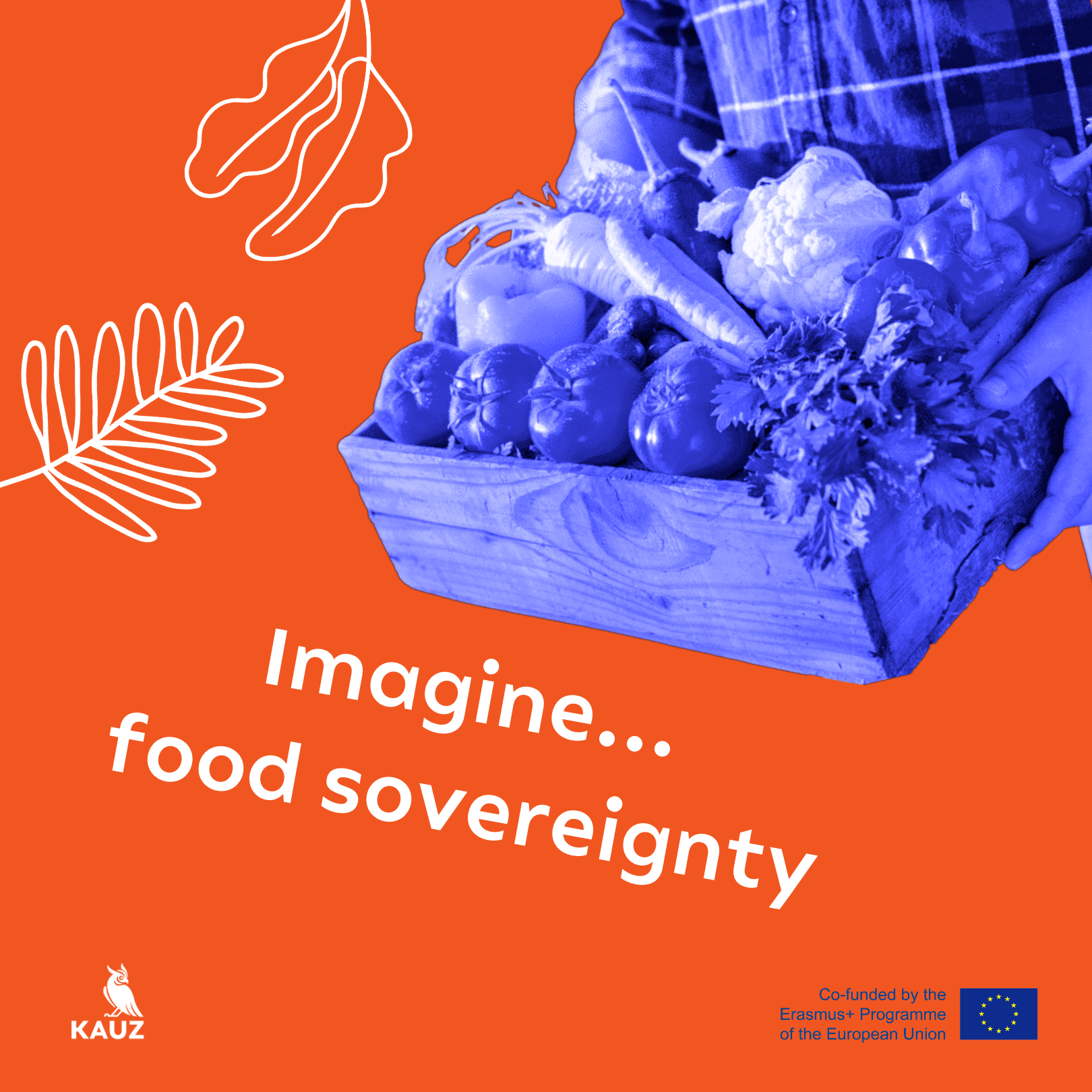

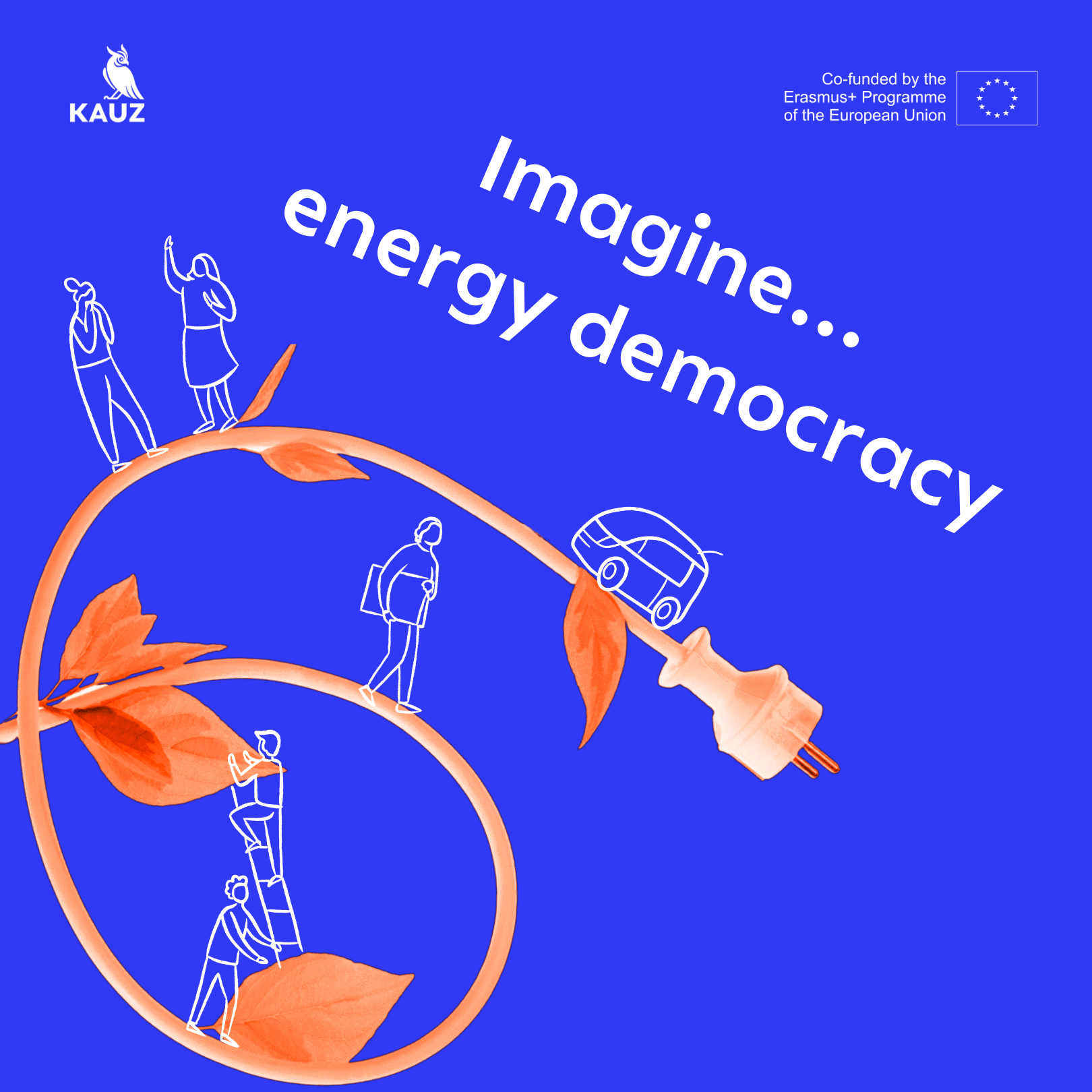
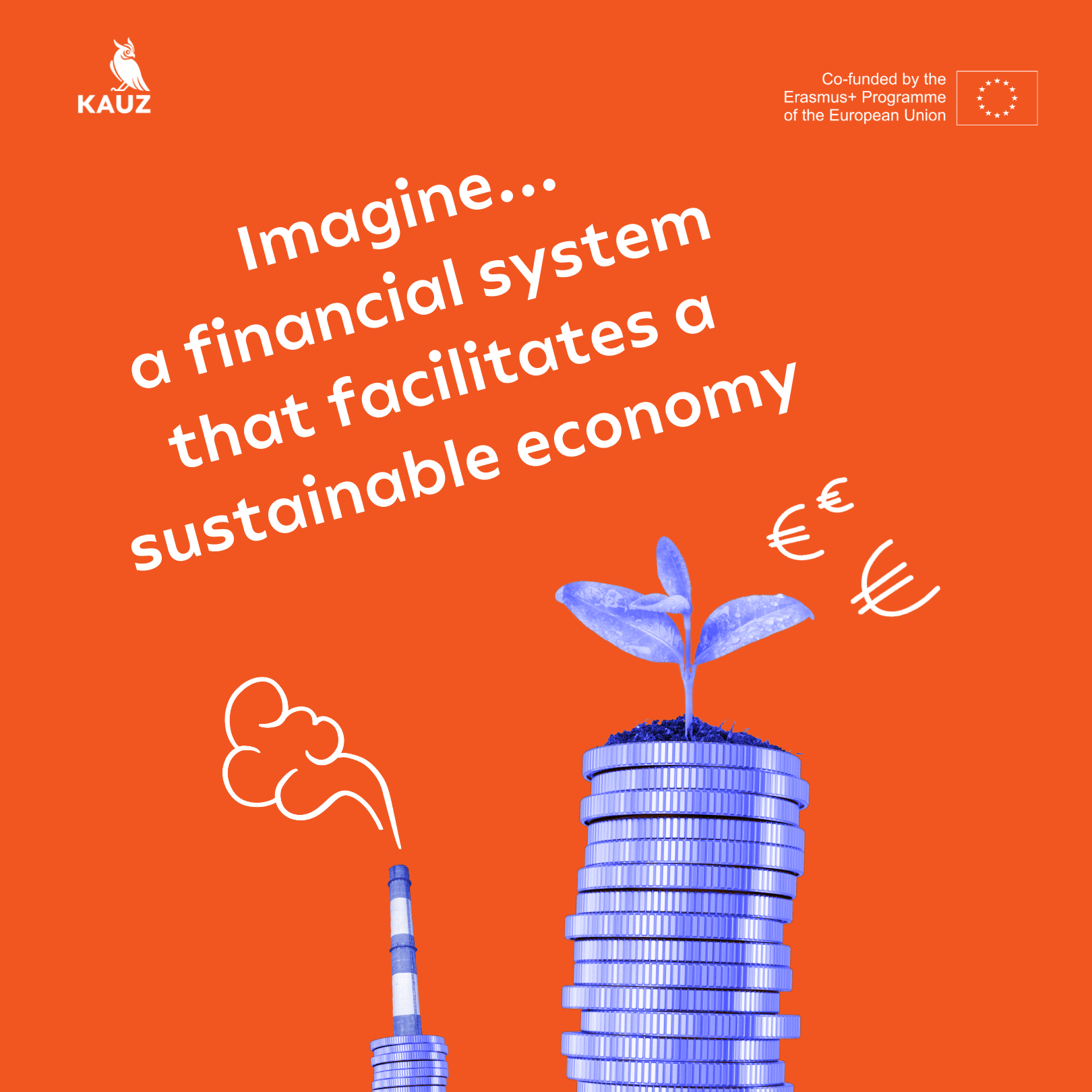
Workshops
Caring4future
In this workshop, we want to get to the bottom of the characteristics of a caring society, meaning a mode of living in which the needs of people and the environment are central. In a journey of thoughts, we explore individual and shared elements of solidarity-based futures. A short video will give some ideas about the concept of the Solidary Mode of Living according to the reflections of the I.L.A.-Collective. Finally, on the basis of concrete examples, we discuss different strategies to move closer to a caring society.
The slightly different map
In this workshop, we use the method of collective critical mapping to question the normality with which we accept our surroundings. We explore structures that push us into exploitative behaviour just as well and present examples of structures that support socially and environmentally sustainable living. By comparing these two perspectives, we can sharpen our perception of what is happening in our environment and ask the crucial question: How can an environment that supports a future based on solidarity look like?
